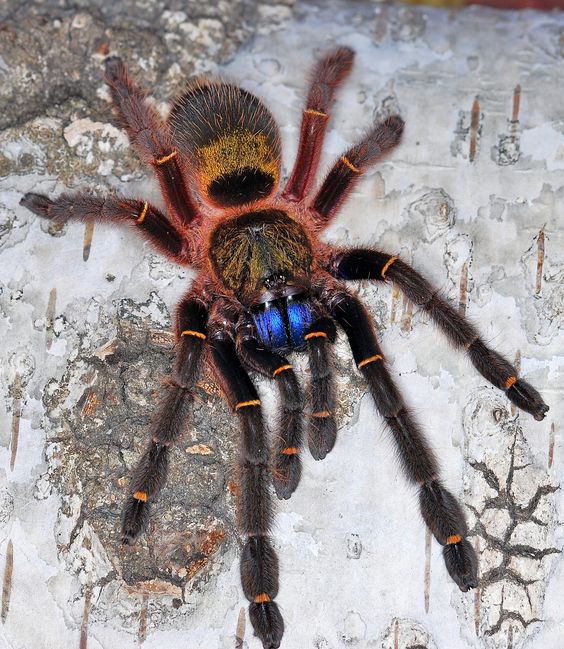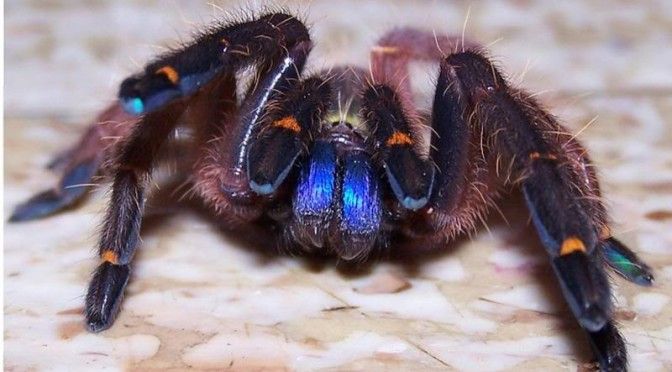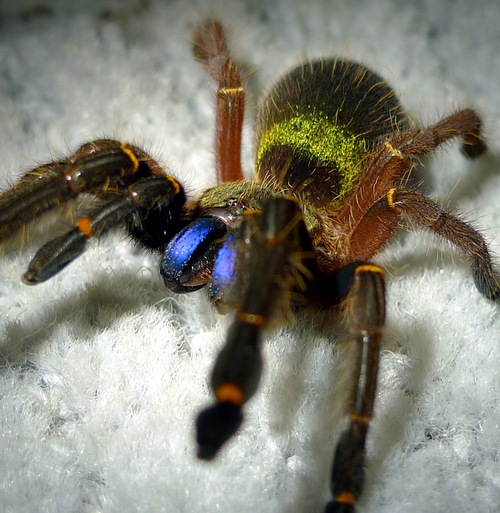
Blue Fang Tarantula | Ephebopus cyanognathus
Live Animals Are Click and Collect Only
Please note that we do not ship live animals. You can order online and collect in store.
The Blue Fang Tarantula, scientifically known as Ephebopus cyanognathus, is a striking and relatively rare species in the pet trade. It is known for its vibrant blue fangs and legs, contrasted with a darker body. This tarantula is a medium-sized species and is often sought after by enthusiasts for its unique coloration and behavior. Unlike some other tarantula species, the Blue Fang is known for its skittish and sometimes aggressive temperament, making it more suitable for experienced keepers. It's also a burrowing species, spending much of its time hidden in its lair.
Origin:
The Blue Fang Tarantula is native to the rainforests of French Guiana and surrounding regions in South America. It thrives in a tropical climate, accustomed to high humidity and warm temperatures.
Temperature:
The ideal temperature for a Blue Fang Tarantula ranges between 75-85°F (24-29°C), with humidity levels maintained around 70-80%.
Housing:
For housing, a terrarium that allows for deep substrate is essential, as Blue Fangs are avid burrowers. The substrate should be a mix of soil and coconut fiber, allowing for moisture retention. A water dish and hiding spots like cork bark or hollow logs are also necessary. The enclosure should be more vertically oriented to accommodate their burrowing and climbing habits.
Feeding:
Blue Fang Tarantulas feed primarily on insects. Their diet can include crickets, roaches, and other appropriately sized insects. Feeding should be done once or twice a week, depending on the size and age of the tarantula.
Lifespan:
In captivity, the Blue Fang Tarantula can live for about 10-15 years, with females generally living longer than males.
Behavior and Personality:
This species is known for its skittish and sometimes defensive behavior. They are quick to burrow or retreat when disturbed and may exhibit aggressive behavior if threatened. They are not recommended for handling due to their speed and temperament.
Please note
We don't ship live animals. You can order online and choose click and collect and we will hold it for you.

















